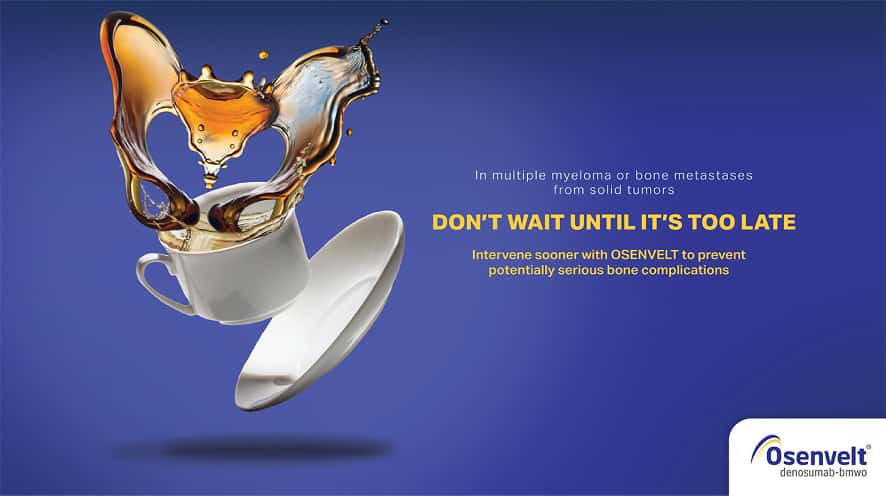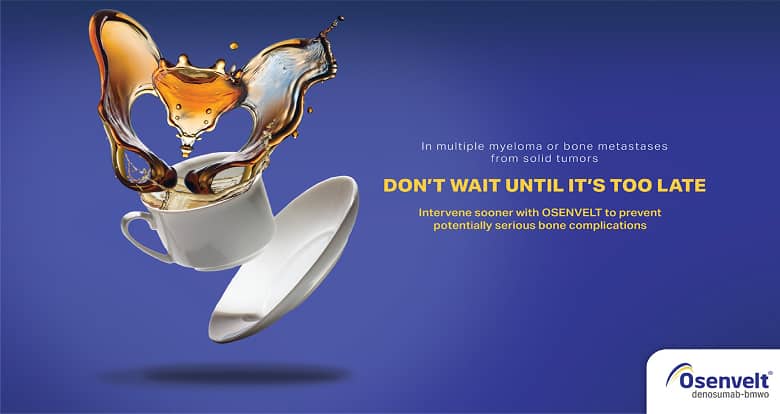HELPFUL RESOURCESand links for patients taking OSENVELT®
Information and support for your treatment journey with OSENVELT is just a phone call away.

Celltrion CONNECT® is here for you every step of the way. For questions and support, call:
1-877-81CONNC (1-877-812-6662)
Monday – Friday between 8 AM – 8 PM ET.

You are not alone on your treatment journey. The organizations below help raise awareness and provide support for patients.


The American Cancer Society (ACS) is a nonprofit organization working to eliminate cancer through research, education, advocacy, and support programs. Founded in 1913, ACS funds scientific studies, promotes prevention, and helps cancer patients with resources like emotional and financial support.

The National Cancer Institute (NCI) is a leading federal agency dedicated to cancer research and treatment. As part of the National Institutes of Health, NCI conducts and supports innovative scientific studies, educates the public about cancer prevention, and collaborates with healthcare providers to improve patient care. Its mission is to advance knowledge and reduce the burden of cancer nationwide.

The Cancer Support Community (CSC) is a global nonprofit organization dedicated to providing free emotional, social, and educational support to individuals impacted by cancer. With a network of 196 locations, CSC offers personalized resources, conducts research, and advocates for equitable cancer care to ensure no one faces cancer alone.

The Multiple Myeloma Research Foundation (MMRF) is the world’s largest nonprofit organization solely focused on accelerating a cure for multiple myeloma. Since its founding in 1998, MMRF has raised over $600 million for research, launched nearly 100 clinical trials, and contributed to the development of over 15 FDA-approved therapies. The foundation drives innovation in treatment, empowers patients with resources, and is committed to advancing health equity in cancer care.

The Prostate Health Education Network (PHEN) is a nonprofit organization founded in 2003, dedicated to raising awareness about prostate cancer, particularly among African American men who face higher risks. PHEN provides education, early detection resources, and advocacy to address disparities in prostate cancer outcomes. Through community partnerships and initiatives, PHEN empowers individuals with knowledge and support.

Indications and Important Safety Information
IMPORTANT SAFETY INFORMATION
If you receive OSENVELT, you should not receive other denosumab products at the same time.
OSENVELT can cause serious side effects including:
Serious allergic reactions. Serious allergic reactions have occurred with denosumab products. Call your doctor or seek emergency care immediately if you experience symptoms such as low blood pressure (hypotension), rash, difficulty breathing, itching, throat tightness, hives, or swelling of your face, lips, or tongue.
Low blood calcium (Hypocalcemia). OSENVELT can lower your blood calcium levels, which can become severe or even life-threatening. Your doctor will check your calcium levels before and during treatment, especially in the first few weeks. You may need to take calcium, magnesium, and vitamin D supplements as instructed by your doctor. Your risk may be higher if you have kidney problems or take other medicines that lower blood calcium. Call your doctor immediately if you experience symptoms of low blood calcium, such as muscle spasms or cramps, numbness or tingling in fingers, toes, or around your mouth, twitching or stiffness.
Severe jawbone problems (osteonecrosis). Severe jaw bone problems may happen when you take OSENVELT. Your doctor should examine your mouth before starting treatment and may advise seeing a dentist. Practice good oral care and consult your doctor or dentist if needed.
Unusual thigh bone fractures. Symptoms include new or unusual pain in your hip, groin, or thigh.
High Blood Calcium After Stopping Treatment. If you have giant cell tumor of bone or are still growing, stopping OSENVELT can lead to high calcium levels in your blood (hypercalcemia). This condition can become severe, require hospitalization, and affect your kidneys. Your doctor will monitor your calcium levels after stopping treatment. Call your doctor right away if you notice symptoms of high blood calcium, such as nausea or vomiting, increased thirst or urination, confusion or tiredness, muscle weakness or pain. Follow your doctor’s instructions carefully, and keep all scheduled appointments for calcium monitoring.
Multiple Spine Fractures After Stopping OSENVELT. After stopping treatment with OSENVELT, some patients have experienced multiple spine fractures. Your risk is higher if you have osteoporosis, previous fractures, or other risk factors. Your doctor will assess your individual fracture risk when stopping OSENVELT.
Risk to Unborn Babies. OSENVELT may harm your unborn baby if you take it while pregnant or within 5 months before becoming pregnant. Animal studies have shown serious harm, including pregnancy loss, birth defects, abnormal bone growth, missing lymph nodes, and slow growth after birth. Your doctor will check if you are pregnant before starting OSENVELT. Tell your doctor immediately if you become pregnant or think you may be pregnant during treatment.
Before taking OSENVELT, tell your doctor if you:
- take other denosumab products
- have low blood calcium
- cannot take daily calcium and vitamin D supplements
- take medicines that can lower blood calcium
- plan dental surgery or tooth removal
- are pregnant, planning pregnancy, or breastfeeding. OSENVELT may harm an unborn baby; a pregnancy test is required before treatment; use effective birth control during treatment and for 5 months after your last dose; inform your doctor immediately if pregnancy occurs. It is unknown if OSENVELT passes into breast milk; do not breastfeed during treatment.
Tell your doctor of all medicines, vitamins, and herbal supplements you take. Keep an updated list to share with healthcare providers.
The most common side effects of OSENVELT are:
For patients with Bone Metastasis from Solid Tumors: fatigue or weakness, low phosphate levels, and nausea.
For patients with Multiple Myeloma: diarrhea, low phosphate, nausea, fatigue, low calcium, shortness of breath, and anemia.
For patients with Giant Cell Tumor of Bone: joint pain, headache, nausea, back pain, fatigue, and pain in arms or legs.
For patients with Hypercalcemia of Malignancy: nausea, trouble breathing, decreased appetite, and headache.
Tell your doctor if side effects are bothersome or persistent. These are not all possible side effects. Call your doctor for advice on side effects or report them to the FDA at 1-800-FDA-1088.



